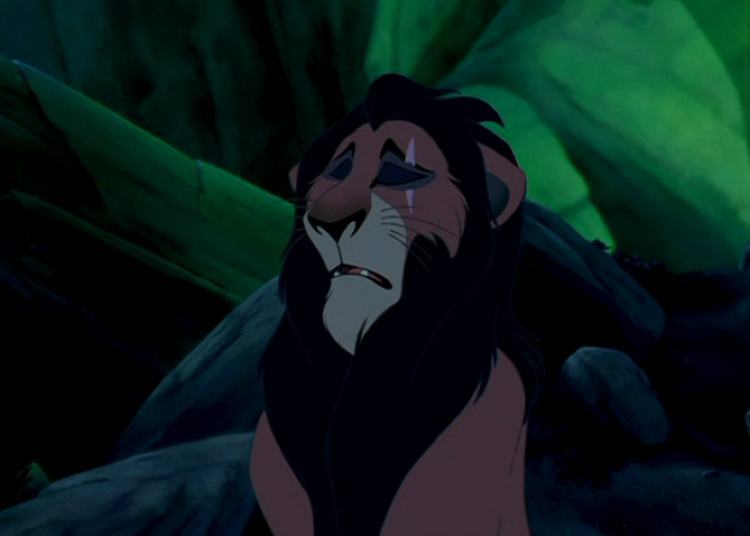The Philosophy of The Lion King
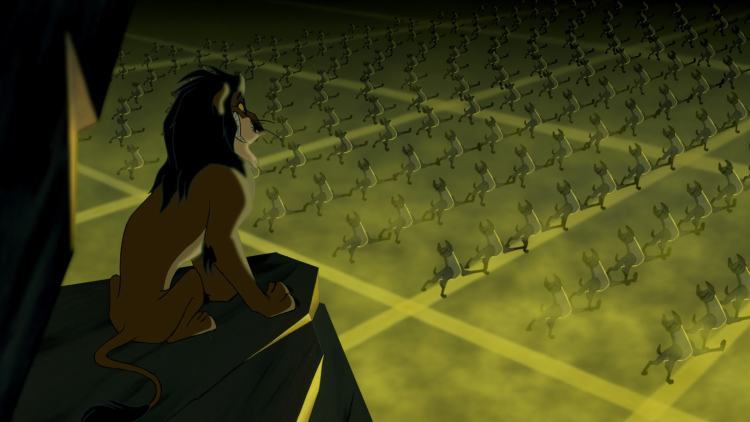
Featured image: Scar oversees his very own Nazi Nuremberg Rally. (Buena Vista Pictures)
Disney’s The Lion King (1994) undoubtedly is a classic animated film. With a thick plot that meanders through treachery, death, and rebirth, inspiration from Shakespeare’s Hamlet, a superb score by Hans Zimmer, memorable compositions by Elton John, and a current position of 5th on IMDb’s list of highest-rated animation feature films of all time, it is difficult to argue any differently.
Subjectively, too, I love the film. In many ways it is timeless. However, though it is not alone, there are aspects of its narrative—more specifically, how the story is portrayed—that I find disconcerting. Allow me to explain.

If you have not seen The Lion King (1994), or if you only want to remember the film rejoicefully, look away now.
The narrative
Simba, born to King Mufasa and Queen Sarabi, is the future ruler of the Pride Lands, a kingdom in Africa that lions rule.
The movie begins with the celebration of Simba’s birth, which is attended by many of the land’s animals, big and small.
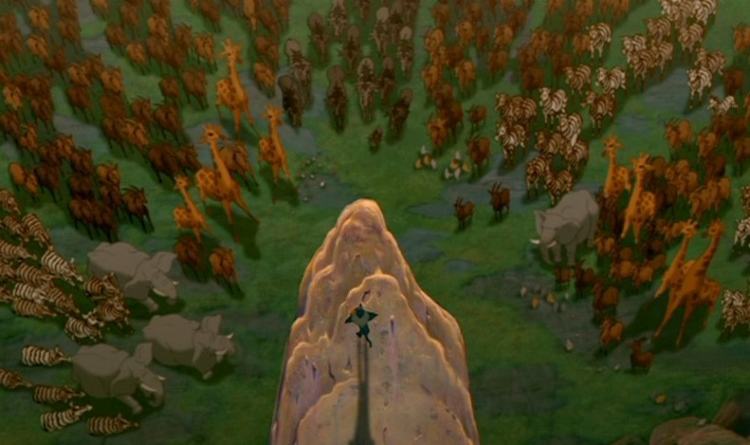
Simba's birth ceremony: Rafiki, a mandrill, will lift newborn Simba to the masses, symbolising their future servitude to him.
Simba quickly grows into a young cub and becomes well aware that one day he will be king. Wise Mufasa, therefore, decides that he must teach his son some important life lessons. Principally, to be a good king, Simba must adopt the Pride Lands’ moral cornerstone—Mufasa’s mantra—the so-called ‘Circle of Life’. In Mufasa’s eyes, lions eat the other animals but, since the kingdom’s other animals eat the grass upon which the lions die, every individual contributes to society.
Mufasa then opts to describe the boundaries of their kingdom to Simba. Only where the light touches does the land belong to them and is safe to go. A naïve Simba and Nala, his future wife (arranged per royal protocol), subsequently disobey this rule: shortly after Simba sings ‘I Just Can’t Wait to Be King’, they escape the supervision of Mufasa’s servant, a hornbill named Zazu, and are chased by a trio of hungry hyenas in the dark Elephant Graveyard. Mufasa, who is strong and brave, fends the hyenas off and saves Simba and Nala from probable death. Later on, Mufasa expresses his disappointment to Simba.
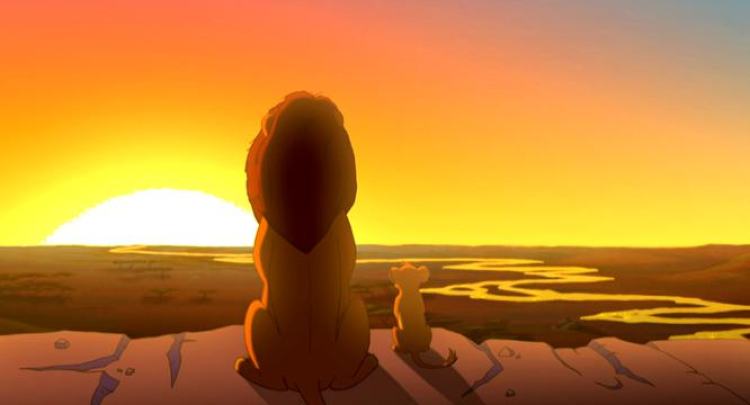
'Look, Simba. Everything the light touches is our kingdom.'
By this point it is clear that Mufasa’s cunning sibling, Scar, an outcast, is disgruntled at being overlooked for the crown. But, aware that Simba is next line to the throne, Scar is in the midst of an evil plan to usurp the current king, rid of Simba, and rule the Pride Lands himself. To achieve this, Scar plots to kill his own brother and employ trickery to fool his nephew into believing that his father’s death was his own fault. Hence, by the rules of royal succession, Scar would become king.
And he will avail.

Scar.
Mufasa’s death is a sad but key component of the story. Simba is forced to escape and shoulder the blame, so understandably he feels crushed and defeated. However, with support and encouragement from a meerkat and warthog duo, Timon and Pumba, Simba undergoes a rebirth and eventually returns from hiding as an adult to heroically defeat Scar.
In the absence of Mufasa’s ideologies, Scar was leading a failing society, with the kingdom suffering a major food shortage, but Simba’s reappearance and presumably the reimplementation of his father’s principles restore morale and the kingdom’s food supply.
Was Scar evil?
A happy ending then? Well, ask a child to watch the movie and see how they react to the ending. I doubt the tears produced following Mufasa’s death will be afforded to Scar. But remove the film’s façade and consider this: Was what Scar strived to achieve inherently evil? Was an attempt to overthrow an undemocratic royal kingdom and implement a more equal society wrong? Because this is how he and his views are presented.
Scar, portrayed as corrupt and depraved, is seemingly bereft of love and hell-bent on power. Yet the ideologies he possesses only superficially reflect a malicious inner nature. Additional scrutiny of his beliefs, then, is surely warranted.
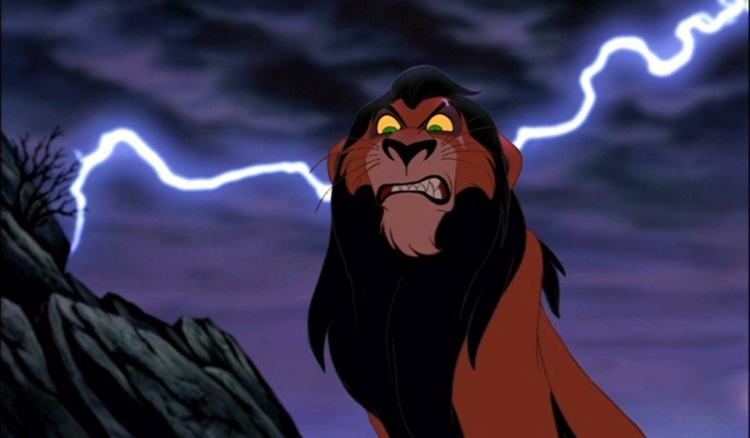
For the film's narrative to be fulfilled we are encouraged to fear Scar.
Scar is darker in appearance, a frequent symboliser of evil in film. Moreover, his voice, provided by Jeremy Irons, is sinister. He is articulate and his movements are serpentine, further encouraging us to fear whatever it is he is plotting. Yet the specifics of his endeavours are not clear. That is, nothing is explicitly stated regarding his beliefs, except that he befriends hyenas and that whatever he implemented led to a major food shortage. (Also note that ‘Scar’ was a name given to him following a buffalo attack. This superseded another name with negative connotations, ‘Taka,’ which translates to ‘dirt’ or ‘garbage’ in Swahili.)
There are further tools that the filmmakers utilise in order to portray Scar as a villain, which may or may not be in contrast to his actual goals (the information is simply not there). For example, watch Scar’s forbidding song, ‘Be Prepared’, and pay particular attention to how he watches over his soldiers (hyenas) in similar vein to Hitler as they goose-step in unison. These scenes are inspired by the Nazi propaganda film Triumph of the Will (1935), which, like much propaganda of that time, features the so-called Nuremberg Rallies. These rallies became more frequent and more prominent when Hitler rose to power in 1933.
Right at the end of his song you may notice further use of symbolism, which, in my view, is employed by the creators to signify Scar’s ideologies. Scar ominously stands atop a mountain alongside a number of hyenas with a crescent moon as a backdrop. Arguably there is a strong resemblance between the moon here and the sickle from a prominent Communist symbol. Scar could be the hammer.
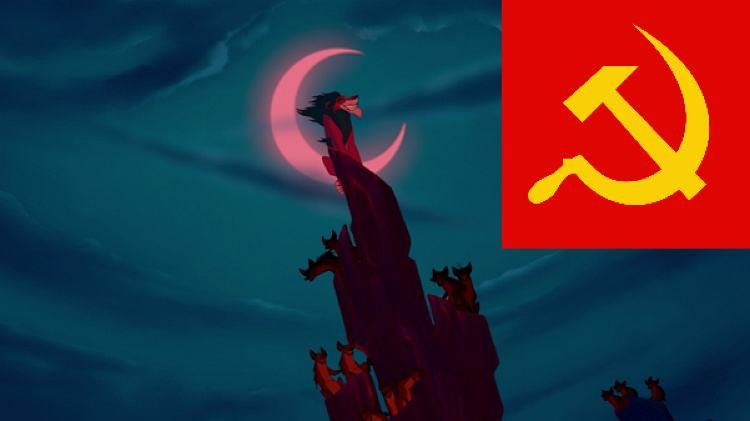
Was Scar a communist? The hammer and sickle represent industrial labour and peasantry respectively.
Furthermore, one could interpret the hyenas as negative portrayals of the working class: they are unsophisticated and lack intelligence and other tropes; and, given Scar’s implicit desire to redistribute ‘income’ (food) to them, they are arguably equivalent to members of the Marxist proletariat.
The characters Mufasa and Simba are not subjects of this treatment. To the contrary, in fact. For instance, during the celebration of Simba’s birth there is a sense of divinity and reverence; the animals of the kingdom bow down to Simba as a light shines from above upon the future king. Within the script, too, the animals are said to ‘genuflect grandly.’
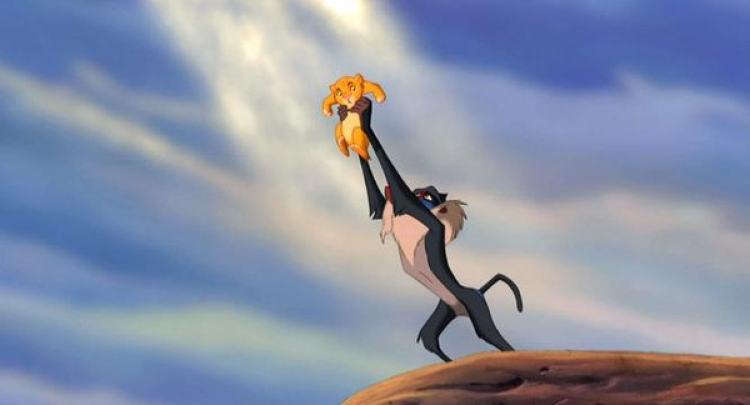
'Good' from birth.
There are additional but more general devices employed by Disney to ensure that Scar and his views are shrouded by negativity and juxtaposed against the righteousness of King Mufasa, Simba, and their all-female pride. When Simba returns to the Pride Lands from hiding, for example, the skies are dull and generally the outlook bleak. In contrast, the weather favours Mufasa and Simba, with rays of sunlight permeating the kingdom, filling us with a sense of joy and justice. Correspondingly, the Lands conveniently begin to flourish once again when Scar is killed and the monarchy is reinstalled, owing to coincidental rain and sunshine.
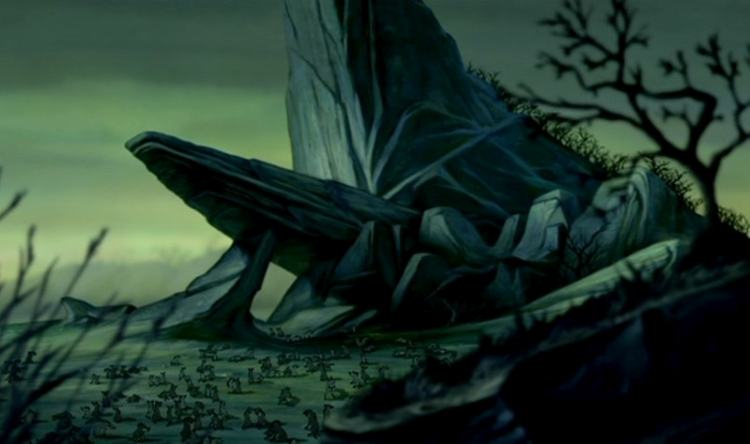
Many hyenas populated Pride Rock during Scar's reign, causing the Pride Lands to become barren.
Objectively—as far as one can be objective when it comes to critically examining fiction—Scar probably lost the moral high ground when he murdered his brother for the sake of power, usurping him to command with absolute rule like he did. However, maybe this act was ethically outweighed by the potential improvement in welfare of the kingdom’s other animals under his guidance. Either way, the arguments for both cases are not supplied; we are only provided with portrayals of good and evil caricatures.
An alternative view
So, if Disney reproduced The Lion King and decided to flip the narrative through various means of portrayal, what angle could they have chosen?
Scar could have been metaphorically praised as a visionary. After all, his bravery in pursuing fairness and equality in the face of traditional royal inequity—challenging his own, privileged kind in the process—could and should have been commended. Well, that is if the writers of the story wanted a more honest narrative. However, I recognise that this is not the primary route to create a great film (though it would certainly be refreshing).
Moreover, Simba’s birth ceremony could have been portrayed as a pompous celebration of privilege and aristocracy. The actual scenes for this, metaphorically, are not too dissimilar to the worshipping of Kim Jong-un of North Korea’s Kim dynasty. Nor do they significantly differ from the relentless and inane fawning over royal children, who is an innocent child born into privilege and hidden power by virtue of two very ordinary people performing sexual intercourse. The common theme between the three is an ulterior yet wilful celebration of a lack of democracy.

The third Kim of the Kim dynasty, Kim Jong-un.
Equally, the Circle of Life could have been exposed as an abusive and exploitive ideology, enforced by a small but powerful ruling class of lions for their own gain. During the early stages of the movie, Mufasa remarks to Simba: ‘As king, you need to understand that balance and respect all the creatures.’ Now, though it cannot be argued that the lions should not eat the land’s other animals as occupiers of the food chain’s top spot, surely the Circle of Life is a platitude of pure deception. The lions’ input into this society is minimal compared the ultimate sacrifice of death to feed them as dominating classes of the Pride Lands. How is this ‘respect?’ Besides, neither of the lions that are shown to expire in the film actually die on grass! But, again, none of this fits The Lion King’s narrative.
It is not just The Lion King
Of course, The Lion King is not the only perpetrator as they follow a pattern. Heroes and villains in stories are prevalent, precisely to convey a narrative, under which we are usually asked to side with protagonists against antagonists. In the Star Wars franchise, for example, there is the aptly named ‘dark side’ of the Force; in James Bond there is always someone, often of different nationality and sometimes disabled, threatening world safety with unclear motivations beyond power itself; and the whole premise of superhero movies is that there is a fundamental division of good and evil. In each example we are not-so-subtly informed which side is wrong and which side is right.
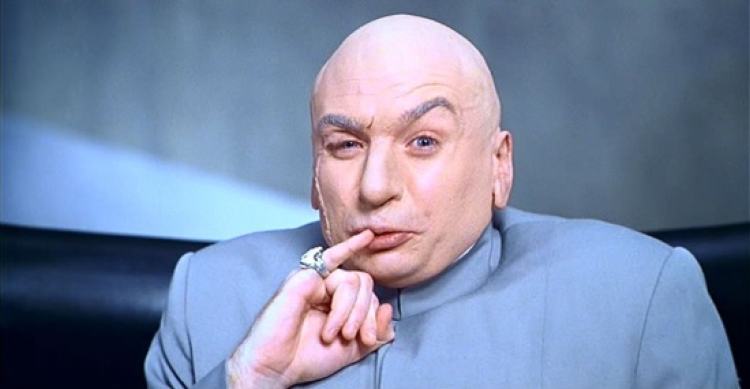
Dr Evil from the Austin Powers movies
Consequently, when I stumble upon a film or a show where opposing philosophies are presented in a more proportionate and more equal manner to challenge the viewer I am pleasantly surprised and my engagement elevated. Take Channel 4’s Utopia (UK) and young-adult sci-fi movie The Maze Runner (2014). Both confront fundamental questions about population-wide issues where there are no clear answers. As such, viewers should come to appreciate that ‘evil’ isn’t something we should presuppose about people since there are just different approaches to solving these problems.
The significance
One may think my arguments so far trivial. These are only stories. Why is this even important? Although I appreciate that conscious intentions to craftily manipulate audiences through symbolism is not usually appreciable, I believe an adverse influence on how we think is. There is a wider and systemic problem here that is insidious in nature and The Lion King exemplifies it effectively. Meanwhile, the fact that The Lion King is primarily for children makes the it even more worrying.
I do not know whether there are elements of this movie that were intended to influence our beliefs regarding communism and monarchies or not but the effect is the same: to perpetuate a tendency to deflect attention from facts and obfuscate the truth, reducing our ability to make informed judgements. In my opinion, ‘good’ and ‘evil’ are mere notions which discourage us from critically thinking and scrutinising, whereby tropes in films are vehicles of this mechanism.
And this extends beyond film to society.
Firstly, we should worry about misunderstanding people’s motivations. Even those who, historically, are considered evil—say, fascists and extremists—probably believed in some form of ultimate good (likely alongside some personal gain); and by accounting for this we are in a better position to understand their concerns and solve issues they are causing. So there is a practical benefits to not using notions such as ‘evil’ as opposed to bluntly labelling our opponents as inherently bad outright.
Furthermore, labelling people in this way legitimises miscommunication of information. That is to say, information can be tailor-made for consumption by the public such that it favourably fits the agenda of those in power. Consider how information is often communicated to the public by politicians, where the latter wants to persuade the former. This may be achieved, for instance, by cherry-picking—selectively using statistics and omitting certain facts—unjustifiably condemning the opposition as incompetent.
Then there is the whole premise of an advert, in which we are presented with only the good aspects of a product. As imperfect creatures, we are most certainly predisposed to the power of persuasion.
Ideally, we would be presented with purely factual information in a simple and digestible fashion. But how facts are portrayed depend on one’s agenda; and if facts are complex in nature, there is greater scope to mislead us by pandering to our fears and insecurities. When there are hugely complex issues to consider, where even expert opinions are far from unanimous—such as the UK’s EU referendum and the economy—we are most vulnerable, as the lack of understanding can be used against us by a disingenuous elite, not too dissimilarly to Disney.
In our defence, we are conditioned to accept facts from the experienced; it is how we learn as children. We learn from our parents, we are taught by teachers, we look up to our role models, we subsequently entrust our government. Without this trust, we gain no source of knowledge. In film—perhaps because we are so used to being told right from wrong—we expect this familiar mode of storytelling. The downside, though, is that this reduces our ability to clearly see the facts.

We must trust a conveyor in order to gain knowledge. With greater emphases on critical thinking and scrutiny, perhaps we will be better equipped to see through a facade designed to mislead us in some way.
The Lion King, despite being a brilliant movie, is a great example of a source of these flaws; and, at some level, it indicates that we are all susceptible to propaganda if we blindly believe what we are told (here, that Scar was evil). But I hope I have demonstrated that, with the unembellished information available, the narrative could have easily been flipped. Sure, tropes of good and evil assist in storytelling but their continual implementation should foster concern, for polarising people from a young age is not conducive to critical scrutiny later in life.
We were asked to believe an ideology without question, just like Scar and the hyenas were asked to unconditionally answer to King Mufasa and his aristocrats unquestioned. Maybe an absolute power in monarch form would have been better; but, without details of how the monarchy arrived at the benefits, apart from some well-timed rain and sunshine to bring food back to the Pride Lands, it can only be said that we were fed enjoyable, heart-warming propaganda.
Generally, our susceptibility to manipulation begins when we allow a conveyor to advocate and condemn ideologies for us. This conveyor can be a storyteller, a politician, a media outlet, a role model, or any other selective source of information. I think this is dangerous as it assumes that those in control have our best interests at heart. Call me idealistic but I believe that a society in which we are impartially provided information and educated and enlightened, not misled and persuaded, is one that will serve our best interests. However, if we adopt this philosophy too stringently, we may lose some high-quality films like The Lion King along the way.
